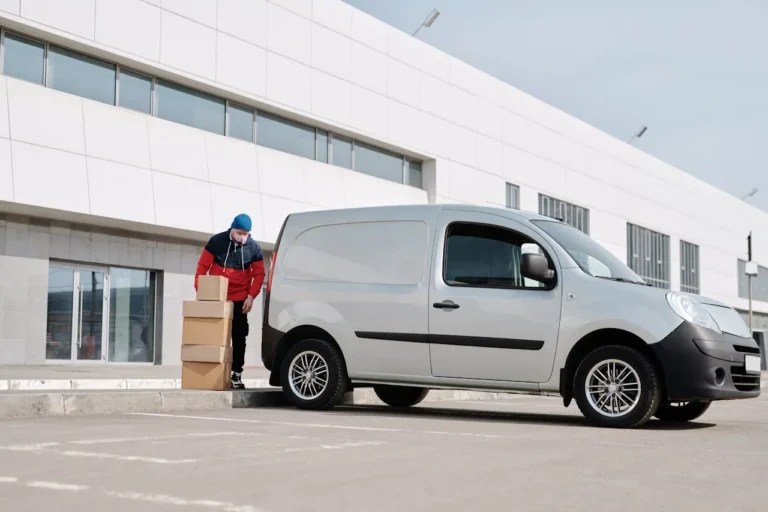
Tata Motors Expands Its Sustainable Footprint with Inauguration of Advanced Vehicle Scrapping Facility in Kolkata
Tata Motors, India’s largest manufacturer of commercial vehicles, has taken another decisive step in its commitment to sustainability with the inauguration of an advanced Registered Vehicle Scrapping Facility (RVSF) in Kolkata, West Bengal. This state-of-the-art facility, named Re.Wi.Re – Recycle with Respect, is the company’s eighth such establishment in India, reinforcing its vision of enabling a circular economy through responsible vehicle disposal practices.
Strategically located in Kolkata, the new facility represents a significant expansion of Tata Motors’ scrappage ecosystem, which already includes centres in Jaipur, Bhubaneswar, Surat, Chandigarh, Delhi NCR, Pune, and Guwahati. With this launch, Tata Motors has now established three Re.Wi.Re centres in eastern India alone, enhancing accessibility and convenience for customers across the region who are seeking environmentally responsible end-of-life vehicle solutions.
The Kolkata RVSF has been developed in partnership with Selladale Synergies India Pvt. Ltd, a key operational collaborator. Designed with cutting-edge technology and safety protocols, the facility is capable of dismantling up to 21,000 end-of-life vehicles (ELVs) annually. This includes not only Tata vehicles but also passenger cars, commercial vehicles, two-wheelers, and three-wheelers from all brands, making it a fully brand-agnostic operation aligned with India’s national scrappage policy.
A High-Profile Inauguration: Voices from the Government and Industry
The inauguration event was attended by several dignitaries from the West Bengal government and senior leaders from Tata Motors. Among those present were Mr. Snehasis Chakraborty, Hon’ble Minister of Transport, Government of West Bengal, who officially inaugurated the facility, and Mr. Firhad Hakim, Mayor of Kolkata and Hon’ble Minister of Urban Development & Municipal Affairs, who participated virtually. Also present was Mr. Rajesh Kaul, Vice President & Business Head – Trucks, Tata Motors Commercial Vehicles, who offered insights into the company’s strategic goals.
Speaking at the event, Mr. Snehasis Chakraborty lauded Tata Motors’ initiative, stating,
“The inauguration of Tata Motors’ Re.Wi.Re is a welcome step towards building a cleaner and more efficient future for our people. This initiative will also support the adoption of newer, safer, and energy-efficient vehicles and create circular economy opportunities within the transport sector. We appreciate Tata Motors, Selladale Synergies, and all partners involved for bringing this initiative to our state.”
His sentiments were echoed by Mr. Firhad Hakim, who emphasized the project’s alignment with West Bengal’s developmental goals:
“The launch of Tata Motors’ RVSF reflects a meaningful step towards sustainable development, helping to reduce the environmental burden in our state and improve overall well-being. This facility will create valuable employment opportunities for the state. We commend Tata Motors for taking this forward-thinking step for the people of our state.”
Tata Motors’ leadership reiterated the company’s vision of promoting sustainability through innovation and industry collaboration. Mr. Rajesh Kaul remarked,
“Tata Motors is committed to driving sustainable mobility solutions while fostering a circular economy. The inauguration of West Bengal’s first Re.Wi.Re and the country’s eighth facility is a significant step in expanding our vehicle scrapping ecosystem. With the cumulative capacity of dismantling more than 1.3 lakh vehicles annually across eight Tata Motors RVSFs, we are proud to lead the way in transforming India’s vehicle scrapping ecosystem with a focus on safety, compliance, and sustainability.”
Re.Wi.Re – Recycle with Respect: Sustainability Meets Innovation
The Re.Wi.Re facilities represent a new benchmark for how the Indian auto industry manages end-of-life vehicles. The entire scrapping process is fully digitalized and paperless, from documentation to final dismantling, ensuring transparency, traceability, and regulatory compliance. This digitization also makes the user experience more seamless and convenient for customers looking to dispose of their old vehicles.
Operationally, the facility is segmented into specialized dismantling lines: a line-type dismantling process is dedicated for passenger vehicles, while cell-type dismantling setups are used for commercial vehicles and two- and three-wheelers. Each dismantling station is designed with safety and environmental considerations at the forefront.
Dedicated zones are established for the safe and responsible removal and disposal of critical components such as:
- Tyres
- Batteries
- Fuel tanks
- Lubricants and oils
- Coolants
- AC gases and refrigerants
This meticulous process ensures the environmentally sound disposal of all vehicle parts, minimizing waste and maximizing the recovery of reusable materials. Once a vehicle is de-registered and brought to the RVSF, it undergoes a rigorous inspection and step-by-step dismantling, ensuring compliance with India’s Vehicle Scrappage Policy, which aims to promote cleaner air, improved road safety, and the adoption of modern vehicles.
Driving India Toward a Circular Economy
Tata Motors’ expanding scrappage infrastructure is a cornerstone of its broader commitment to sustainability and innovation. As environmental regulations tighten and urban centers become increasingly congested, the importance of responsible ELV management is growing. Through the Re.Wi.Re initiative, Tata Motors is helping address the environmental and public safety hazards associated with aging, high-emission vehicles.
Moreover, this initiative also supports Make in India and Atmanirbhar Bharat efforts by creating a self-sufficient ecosystem for vehicle recycling, while generating local employment opportunities and boosting ancillary industries, such as recycling, parts recovery, and eco-friendly waste management.
By setting up high-capacity, modern RVSFs across key regions in India, Tata Motors is also providing customers with an incentive to retire their old vehicles and transition to new, fuel-efficient, and safer models, further driving the adoption of cleaner mobility solutions.
With eight Re.Wi.Re facilities now operational and a combined annual scrappage capacity exceeding 130,000 vehicles, Tata Motors is setting the pace for sustainable transformation within India’s automotive landscape. The Kolkata facility, in particular, holds strategic importance, not only due to its location in a key metropolitan region but also because it will serve as a model for future RVSFs in terms of scale, digitalization, and environmental impact.
The successful launch of this facility is another reminder of Tata Motors’ leadership in aligning business goals with national priorities and environmental stewardship. As vehicle scrapping becomes an integral part of India’s auto industry reform, Tata Motors is poised to remain at the forefront—building cleaner cities, enabling a greener tomorrow, and driving the shift toward a circular economy, one recycled vehicle at a time.







